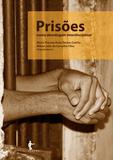Rethinking the Andes–Amazonia Divide
Editorial: EDUFBA
Licencia: Creative Commons (by-nc-sa)
Autor(es): Coelhos, Maria Thereza Ávila Dantas; Carvalho Filho, Milton Julio de
Nowhere on Earth is there an ecological transformation so swift and so extreme as between the snow-line of the high Andes and the tropical rainforest of Amazonia. The different disciplines that research the human past in South America have long tended to treat these two great subzones of the continent as self-contained enough to be taken independently of each other. Objections have repeatedly been raised, however, to warn against imagining too sharp a divide between the people and societies of the Andes and Amazonia, when there are also clear indications of significant connections and transitions between them. Rethinking the Andes–Amazonia Divide brings together archaeologists, linguists, geneticists, anthropologists, ethnohistorians and historians to explore both correlations and contrasts in how the various disciplines see the relationship between the Andes and Amazonia, from deepest prehistory up to the European colonial period. The volume emerges from an innovative programme of conferences and symposia conceived explicitly to foster awareness, discussion and co-operation across the divides between disciplines. Underway since 2008, this programme has already yielded major publications on the Andean past, including History and Language in the Andes (2011) andArchaeology and Language in the Andes (2012). ‘This book makes a major contribution to the study of the deep, interregional history of humanity in South America. I am unaware of any other volume that occupies the place envisioned for this work, with the result that it will become a standard book to be read or consulted for some time to come. Overall, it is a professional contribution of real significance that will be widely used across history, genetics, linguistics, and archaeology, as discussion of the kinds of issues treated by this study of Andean-Amazonian relations is badly needed.’ – Terence N. D’Altroy, Columbia University
Compartir:
Una vez que el usuario haya visto al menos un documento, este fragmento será visible.


